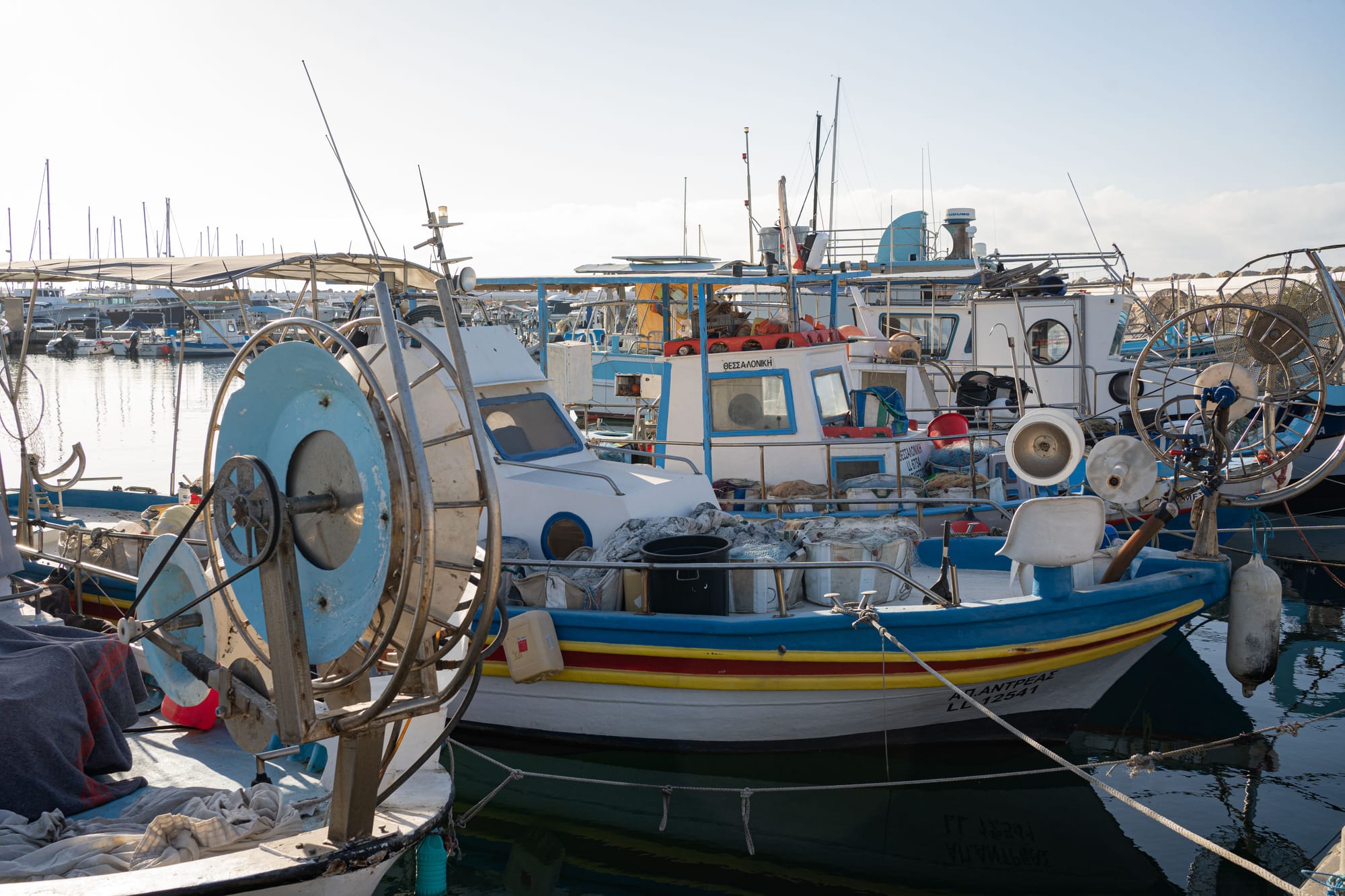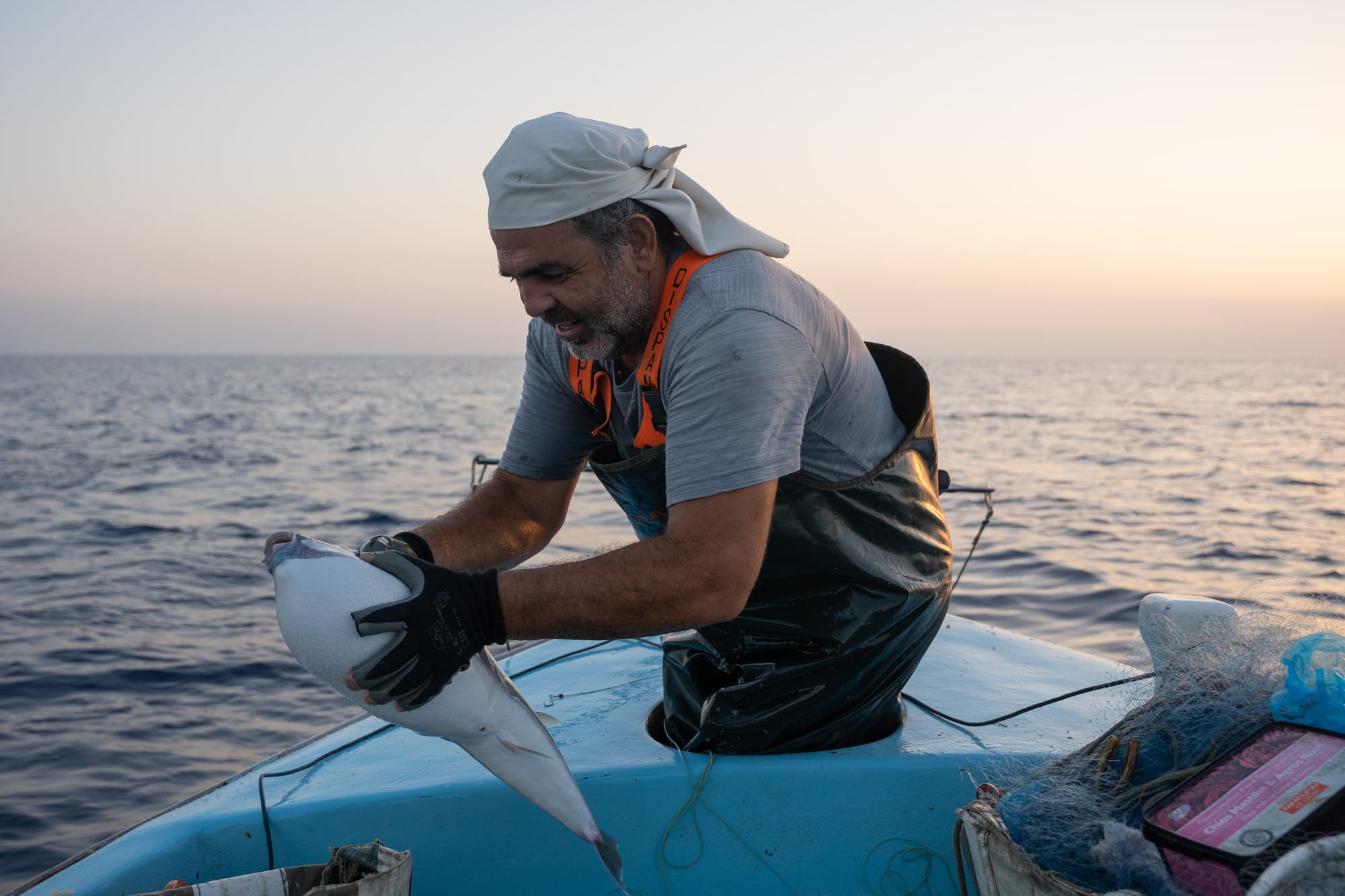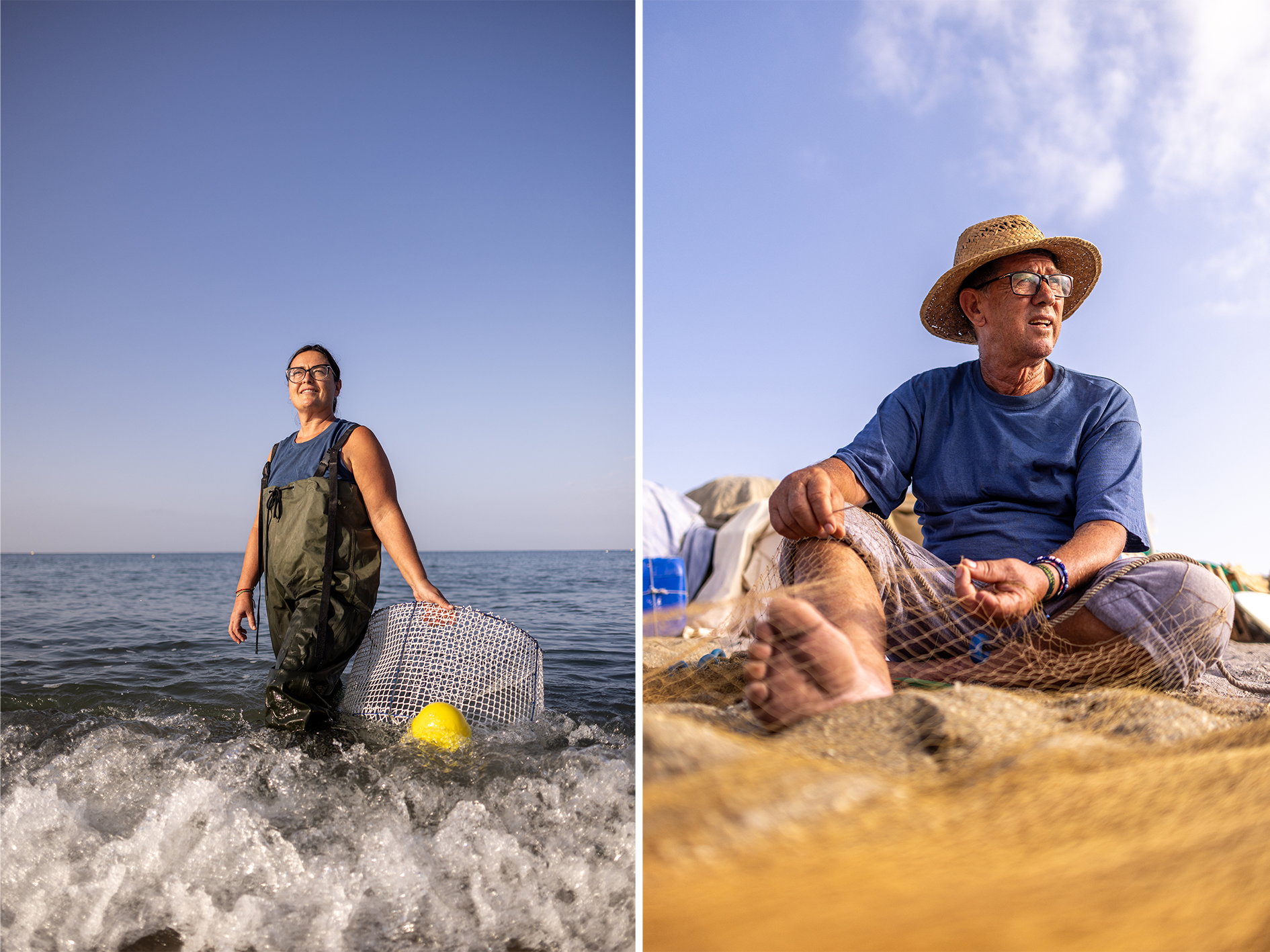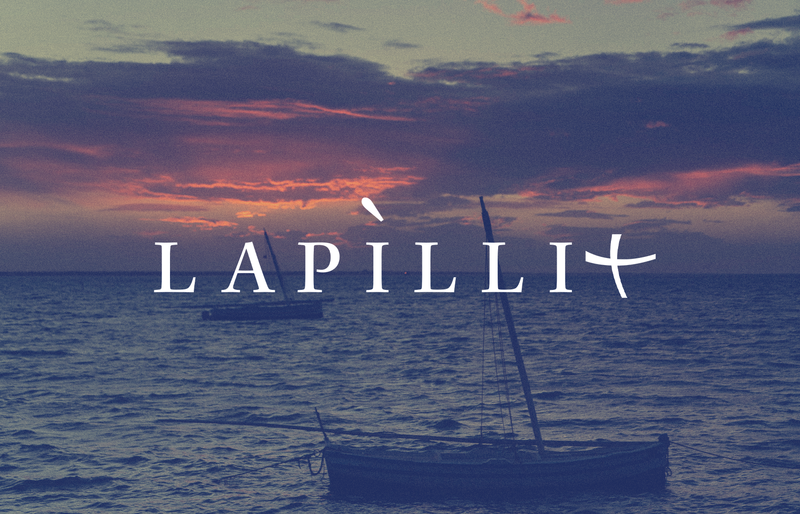The most memorable event I attended during the United Nations Ocean Conference (UNOC) in Nice was a panel dedicated to small-scale fishers. What stood out was the energy, authenticity and engagement rarely seen in conference settings. Among the panelists was a representative from the Low Impact Fishers of Europe (LIFE), a platform that brings together and supports small-scale fishers at the European level. I reached out to them after the event to hear directly from their Mediterranean members. Despite the many challenges small-scale fishers face in one of the most-overfished seas in the world — overtourism, climate change, invasive species, competition over fewer and fewer resources, increasing maritime uses, bureaucracy and little generational renewal — they sound committed to reclaiming their space in marine governance. They know, as they often repeat, the hard truth: Without fish, their job and way of life will likely disappear.

Kazimir Bogović was once a restaurant owner. Then, seven years ago, he swapped the kitchen for a fishing boat. The decision wasn’t driven by money, but a longing for freedom. Fishing runs deep in his blood: his father, grandfather and great-grandfather were all fishers. So now he spends his winter nights harpooning octopus, squid and cuttlefish. Then, during the summer months, like many of the 60 fishers on the small Croatian island of Mali Lošinj, he sets traps for lobster, octopus and fish.
“We strongly support the [use of] selective tools and care for the sea, so we can leave something for future generations,” Bogović tells me, describing the mission of the small-scale fishers’ association of the Adriatic he belongs to.
Every year, the small-scale coastal fishers’ association organizes a meeting with researchers from institutions like the Center for Marine Research in Rovinj or the Institute of Oceanography and Fisheries in Split. The goal is to gain a deeper understanding of the state of the Adriatic Sea and identify measures to support the regeneration of its resources.
One initiative, in particular, has been eye-opening for many fishers along these coasts: the establishment in 2017 of a fisheries-restricted area in the Jabuka (or Pomo) Pit, a deep-sea area between Italy and Croatia that serves as a vital spawning ground for hake and langoustines. Bogović recalls: “After a few years, around that area, even trawlers have seen that they catch much better than before.”
Now, the small-scale fishers’ association is in talks with the Croatian government about establishing new fisheries-restricted zones in other locations.
But when asked about the future of small-scale fishing in the Mediterranean, Bogović sounds less optimistic.
“There will always be someone who will do this job because, like me, they want their freedom and they like the sea,” he says. But licenses and boats are getting more and more expensive. “The number [of small-scale fishers in the Adriatic ] will only go down.”

Antonis Petrou, a marine biologist who has spent over two decades serving as scientific advisor to the Pan Cypriot Association of Professional Coastal Fishermen, is even more pessimistic. “I’m guessing that in 20 or 25 years, there won’t be any professional small-scale fishers left,” he tells me, speaking about the situation in Cyprus. “It will only be a part-time job or a hobby — not a job you can feed your family and make money with.”

Back in 2012, Cyprus supported 12 trawlers and around 500 small-scale vessels, of which 300 were full-time professional fishers. Today, only two trawlers remain, alongside 327 coastal licenses — just about 100 of which belong to full-time professionals. Some fishers earn as little as 20 to 30 euros a day. Very few young people are entering the profession, and older fishers often struggle to retire, as the state no longer offers compensation from EU funds for removing their boats from the registry.
The problem is simple, as Petrou repeated several times during our interview: There's no fish to catch. This is due, he explains, to a combination of factors: overfishing from the past, climate change, the spread of invasive species and poor management.
In Cyprus, exotic species make up as much as 80 percent of the catch. While some — like lionfish or rabbitfish — have found a market, many sellers still prefer imported or farmed fish over local fishers’ dwindling catch. “We feed a lot of tourists here in the summer and a lot of people eat fish; a large percentage of that is imports,” Petrou says. “The shops, the restaurants, like to have a standard supply.” And a few coastal fishers cannot guarantee that.

Dolphins have also become a problem. “Here, dolphins have learned it’s easier for them to go and eat from the nets, from the hooks, instead of hunting fish,” he says. While the government compensates fishers for damage to their catch, it does not cover the damage to gear, making it nearly impossible for small-scale fishers to prove that dolphins had eaten from their broken empty nets.
Yet, Petrou believes that financial incentives or subsidies alone won’t change the situation.
“It's not only the management of the stock or the management of the sea,” he says. “It’s the management of the people that you have to deal with as well.”

An inspiring initiative comes from the island of Pantelleria, in the southernmost part of Italy, where in 2009 a dozen small-scale fishers formed an association to protect their local resources from outside fleets fishing in their waters.
“Until a few years ago, Pantelleria was being heavily exploited by the fishing fleet operating in the Strait of Sicily,” Federico Gelmi tells me. “Especially by small-scale fishing fleets… using their concessions very extensively.”
Even if his main occupation does not involve fishing, Gelmi owns a fishing boat and has been part of the Pantelleria fishers’ association since its very start.
“We created this association because we saw that the sea around Pantelleria was in great distress,” he says. “Unlike other fishing communities where declining catches led to increased fishing effort, we tried to do something different… We self-limited ourselves.”
So, at first, Pantelleria’s ten local fishing boats voluntarily reduced their trammel nets from the legally allowed 5,000 meters to 1,500 meters per boat, also widening their net mesh to let small fish through.
Then, in 2012, after the association joined the Trapani management plan, the compartmental authorities formalized these rules. Now, all the fishers coming to Pantelleria have to respect the 1,500-meter limit, the enlarged mesh size and a two-month nursery zone for mullet to let them repopulate.
These measures, though, only involve fishers working with gillnets and do not affect purse seine vessels, which still keep fishing in Pantelleria’s waters. To reduce their impact, Gelmi and the association argue that coastal fishing within three miles should be reserved for small-scale fishers.
“The real strength we have as small-scale fishers is the fact that we can be much more — not completely but much more — environmentally friendly than large-scale fisheries,” he says. “If we can limit ourselves and carry out some initiatives that can help the sea recover, maybe our profession has a future. Otherwise, it will disappear because there’s no more fish.”

Luis Rodríguez Rodríguez is a member of Pescartes, an association of artisanal fishers operating in Cabo de Gata-Níjar Natural Park, a coastal protected area that includes a portion of the Alboran Sea, in Andalusia, Spain. Here, fishers use highly selective gears for each target species (from cuttlefish or octopus pots to different fish nets and rakes for clams) and operate small boats — less than 10 meters in length — which they must anchor or beach on the shore, due to the absence of port infrastructure.
“If young people want to become fishers, they will push governments to respect this profession,” Rodríguez Rodríguez tells me via email. “If not, we will slowly disappear from the coasts and along with us will go the eyes that watch over the sea, the food we provide and the culture we keep alive.”

Macarena Molina is a marine scientist who assists Pescartes members with administrative procedures and in implementing new ways to improve their work.
“Small-scale fishers have always known they needed to take care of the sea and the resources they depend on,” Molina tells me via email. “Now, they are trying to claim their political space. The change is slow, but the fishers themselves are leading it by creating organizations that truly represent them,” she adds, citing the European platform of grassroots small-scale fishers’ organizations LIFE as a key example.
But it’s no easy task. Coastal pollution and human activity are forcing fishers to venture farther out to find fish. In Spain, as elsewhere, fishers are observing changes in species behavior due to habitat disruption, the arrival of new species and the disappearance of others. Meanwhile, pressure from competing maritime uses — tourism, offshore wind farms, underwater cabling and more — also represents a growing challenge.
Yet, fishers are increasingly making their voices heard, as evidenced by the UNOC small-scale fishers panel.
“For us, ensuring the continuity of this way of life is essential,” Molina writes. “To do that, we need to raise awareness and help younger generations see this trade as having a future.”

GUIA BAGGI
As an independent journalist, she writes about the environment, as well as the relationship between humans and their surroundings. In recent years, she has been focusing on the impacts of climate change and other environmental crises on the Mediterranean region. Building on this experience, she co-founded Magma.That's it for this month. Thank you for reading this far. See you in August.
If this newsletter was forwarded to you, you can subscribe here to continue receiving it. We put a lot of time and love into making Lapilli+, so we think it's fair to ask less than the cost of a coffee for it. Please switch to the Lapilli Premium plan here; it includes a free two-month trial.
Lapilli+ is a monthly newsletter with original content about the Mediterranean and its environment curated by Magma. Here you can read Magma's manifesto.

